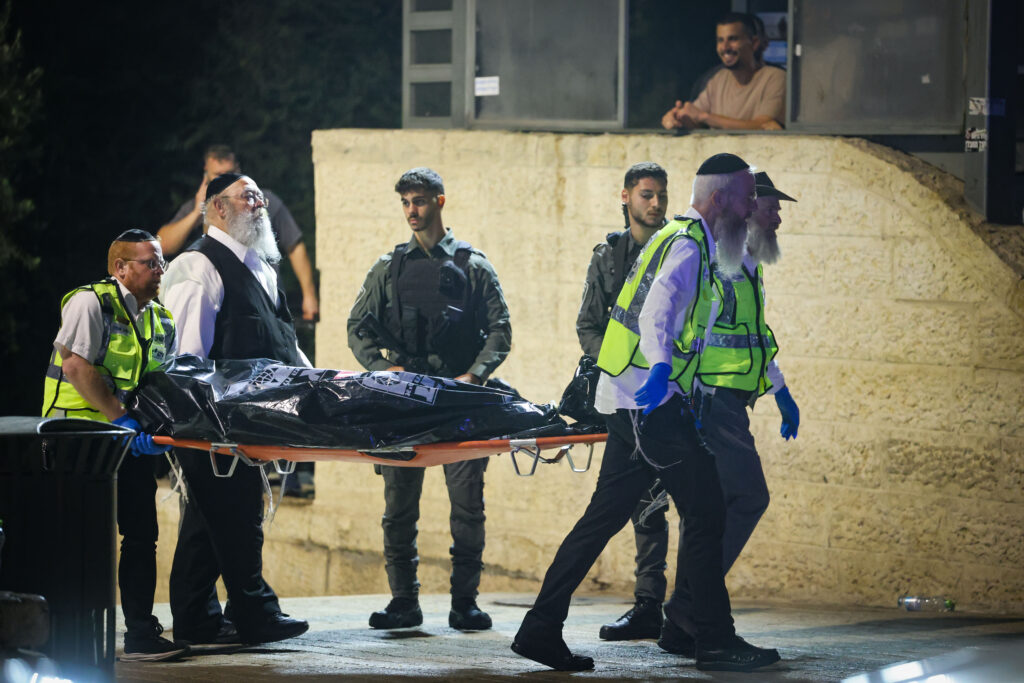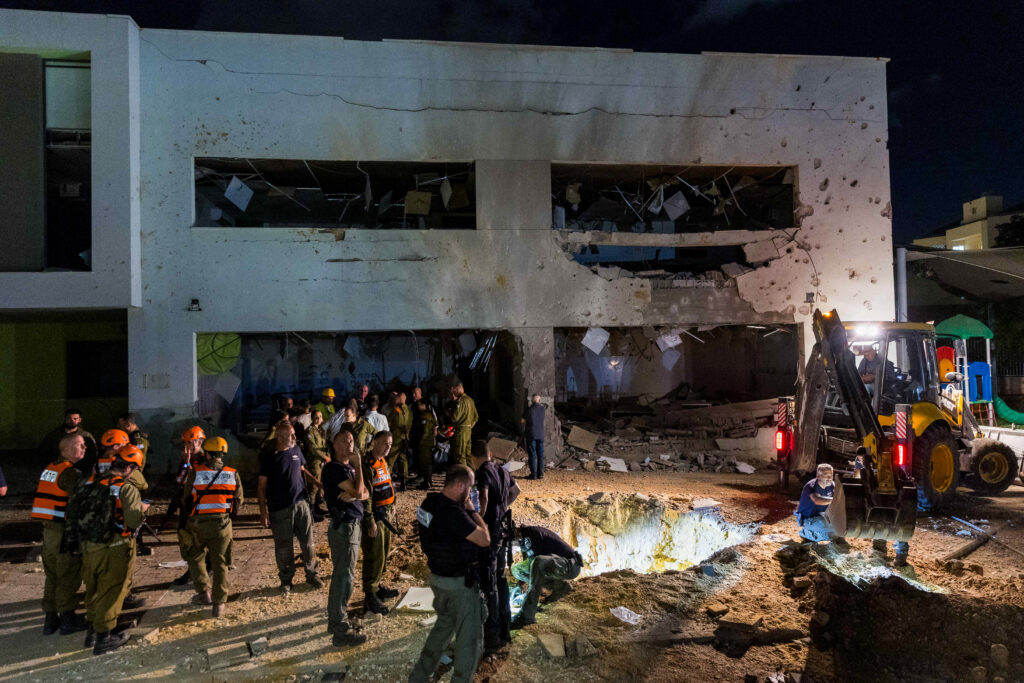
Israel’s New Anti-Terror Legislation, Israel blamed for war, and IDF’s Focus on hostage rescue in Gaza
Knesset Moves Forward with Bill Targeting Families of Terrorists
The Knesset House Committee has taken a significant step by approving, in a 9-2 vote, a bill aimed at canceling the residency or citizenship status of immediate family members of individuals involved in terrorism under specific conditions. Advocates for this measure argue that it could serve as a deterrent, potentially dissuading attackers concerned about the repercussions for their families.
Israeli National Security Council and IDF studies indicate that one of the main concerns of suicide bombers is their families’ welfare post-attack. Lt. Col. Maurice Hirsch, formerly the head of the Military Prosecution for Judea and Samaria and now director at the Jerusalem Center for Public Affairs, was a key contributor to the bill. Hirsch notes that the bill aims to disrupt incentives for attackers, such as stipends from the Palestinian Authority’s “Martyrs Fund,” which provides financial benefits to families of terrorists, even to Israeli Arab citizens involved in attacks on Jews.
While the bill’s title suggests wide-ranging authority, Hirsch clarified that its scope is actually quite limited. The bill empowers the interior minister to revoke citizenship or residency status of parents, siblings, and spouses of terrorists if they had prior knowledge of an attack, failed to report it, or openly supported similar actions. The law also aligns with international conventions to prevent statelessness, ensuring that those affected can retain citizenship. Deportations would be temporary, lasting 7-15 years for Israeli citizens and 10-20 years for permanent residents.

Herzl Hajaj, who leads the Choosing Life-Forum of Bereaved Families, sees the bill as crucial. He argues that it raises the stakes for potential attackers by affecting their families, which might ultimately prevent some attacks. His advocacy stems from his own experience; Hajaj’s daughter was killed in a terror attack, and his efforts to expel the family of the attacker spanned six years in the courts, ultimately reversing a decision to cancel their residency.
With bipartisan support, co-sponsors of the bill include members from Likud, Israel Beiteinu, and Otzma Yehudit. Some Knesset members expect strong backing across party lines, reflecting a wide agreement among Israelis. However, the Attorney General’s Office has voiced reservations, suggesting that certain aspects could weaken the law’s effectiveness. Despite this, proponents like Hirsch and Hajaj are committed to ensuring that the bill maintains its full force as it moves forward.
Who is to blame for the Middle East war? Many Democrats say Israel
A recent survey conducted by the Associated Press-NORC Center for Public Affairs Research reveals a stark partisan split among U.S. voters on who they believe holds responsibility for the ongoing conflict in the Middle East. While about 60% of Americans agree that Hamas, Hezbollah, and Iran bear substantial blame for escalating tensions, views differ significantly regarding Israel’s role. Roughly 60% of Democrats hold Israel largely accountable, contrasting with only about 25% of Republicans sharing this view.
Approximately half of American voters express serious concerns about the risk of a broader regional war, while 40% worry that the United States could be drawn into direct military involvement. The survey, conducted just before Israel’s recent attack on Iranian assets, also highlights that voters support economic sanctions against Iran to curtail its support for groups like Hezbollah and Hamas, though they are divided on providing direct military aid to Israel.

When it comes to sending U.S. troops, around 50% of voters oppose any deployment to the region. On diplomatic efforts, about half of respondents believe the U.S. is currently doing all it can to promote peace talks, while three in ten think more could be done. The survey gathered responses from 1,072 adults, with a 4.2-point margin of error.
IDF’s Key Priority in Gaza: Securing Hostages
Israel’s Defense Minister Yoav Gallant has emphasized that recovering the 101 hostages held by Hamas has become the Israel Defense Forces’ highest priority in Gaza. During a recent visit to troops, Gallant reinforced the importance of applying military pressure on Hamas to facilitate conditions that would support a deal for the hostages’ return.
Gallant urged troops to create the necessary conditions to bring the hostages home, underscoring that routine security operations must also continue, including protecting Israel’s borders and ensuring the IDF’s operational freedom. Gallant also praised soldiers’ efforts in various locations across Gaza, noting that their actions have hindered Hamas’s ability to reorganize.
The Israeli government’s objectives in Gaza are to dismantle Hamas as a military and governing entity, eliminate threats to Israel, and secure the release of all hostages captured during the October 2023 incursion. Diplomatic efforts have seen intermittent mediation by the U.S., Egypt, and Qatar to negotiate the hostages’ release, though progress remains slow. Since IDF’s entry into Gaza over a year ago, intense ground operations have claimed the lives of 365 soldiers and impacted all fronts of the conflict, with a total of 777 military casualties.
The post Israel’s New Anti-Terror Legislation, Israel blamed for war, and IDF’s Focus on hostage rescue in Gaza appeared first on Israel365 News.
Israel in the News



 (@AIPAC)
(@AIPAC)